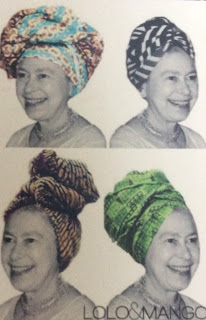Tudor England part I: Exploring Britain's African connections
 |
| Don't judge a book by its cover
© Lolo&Mango
|
I remember vividly those awkward classroom sessions (as the only Black girl in the class), where I’d feel eyes boring into me as the teacher droned on about these poor Africans forced on to ships to the Americas.
No explanation was given about what preceded that momentous Transatlantic Slave trading period. And no acknowledgement of the impact Africans (such as Fante-born 18th century slave abolitionist Quobna Ottobah Cugaono, and Igbo-born abolitionist Olaudah Equiano) made in shaping the modern world.
The unsaid
This omission said more to me about this massive gulf I
was being forced to breach. I was schooled to believe that highly developed and
sophisticated people from African kingdoms such as those of ancient Ghana, Mali and Dahomey had been reduced to just chattel. What my
teacher was trying to convey just failed to satisfy me, prompting me ever since
to find answers elsewhere.
 |
| Image sourced from Freedmen's Bureau |
Brazil and slaves
Luckily I love reading so the library became my haven. By my early teens, I exhausted all books on slavery in my local
branch but still had a hunger for more knowledge! In my explorations, I learnt about the slave trade from
the Ghanaian perspective – visiting one of its many slave posts in the country. I’ll never
forget that smell of death intermingled with sea salt and this heavy feeling of
sadness that I felt when I visited Elmina Castle, Cape Coast, Ghana.
Surrounded by the four walls of a female prison, our guide told us that under the soles of our feet, we were walking on the bone remains of women that had died under inhuman conditions centuries earlier. That smell took days to leave my clothes….
Surrounded by the four walls of a female prison, our guide told us that under the soles of our feet, we were walking on the bone remains of women that had died under inhuman conditions centuries earlier. That smell took days to leave my clothes….
And while in Brasil, I followed that journey of
West Africans captured and sold at Pelourinho Square in Salvador, Bahia, in the north-east
of the country. Pelourinho means whipping post and is where new arrivals were oiled up
and put on display for prospective buyers. See (MisBeee Writes: The Brasil 2014 World Cup: a family affair).
Identity and belonging
Until I read Staying Power by English historian Peter Fryer, and had my fill of the many exhibitions
celebrating the contribution that Africans made to Britain, I didn’t have a
true sense of what being an African person in England really meant. Were my ancestors JUST slaves? Was that the sum total of the African experience in the West?
To find out what I discovered click here for part II.
By Kirsty Osei-Bempong
For more blogs on slavery and its legacies, check
Belle - a new kind of English rose
A podcast: Tudor England's African connections with historian Onyeka
Tudor England II: England's African connections
Gold Coast: a lucid look into Denmark's colonial past
All comments are welcome on this page. If you are having trouble posting on the Google+ page, please share your views via Facebook here or tweet @MisBeee
Please be aware that you may not reproduce, republish, modify or commercially exploit this content without our prior written consent.
For more blogs on slavery and its legacies, check
Belle - a new kind of English rose
A podcast: Tudor England's African connections with historian Onyeka
Tudor England II: England's African connections
Gold Coast: a lucid look into Denmark's colonial past
All comments are welcome on this page. If you are having trouble posting on the Google+ page, please share your views via Facebook here or tweet @MisBeee
Please be aware that you may not reproduce, republish, modify or commercially exploit this content without our prior written consent.





Comments
Post a Comment